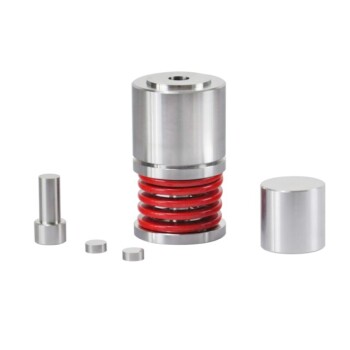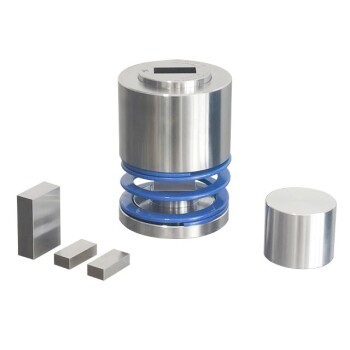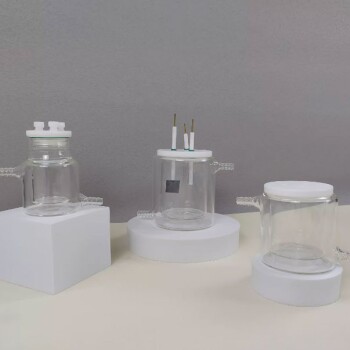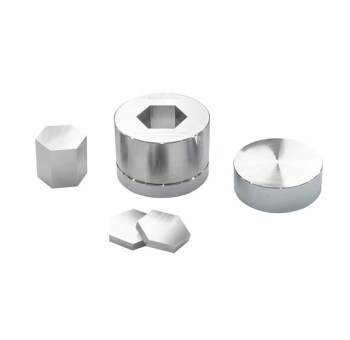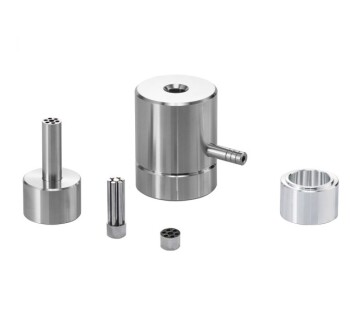In short, stainless steel reactors are chosen for their unique combination of corrosion resistance, mechanical strength, and excellent thermal properties. They provide a durable, reliable, and versatile solution for a vast range of chemical, pharmaceutical, and food-grade processes, capable of operating safely under high pressures and temperatures where materials like glass would fail.
The decision to use a stainless steel reactor is fundamentally a choice for operational robustness. While not universally compatible with all chemicals, its balance of durability, cleanability, and performance makes it the default, trusted material for a majority of industrial processing applications.
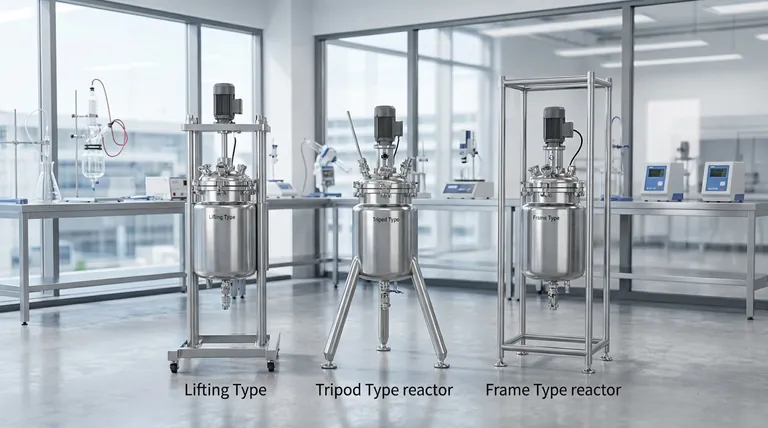
The Fundamental Advantages of Stainless Steel
To understand why stainless steel is so prevalent, we must look at its core material properties. These advantages directly address the most common challenges in process engineering: containment, control, and purity.
Unmatched Corrosion Resistance
The defining feature of stainless steel is its "passive" surface layer. A minimum of 10.5% chromium in the alloy reacts with oxygen to form a thin, inert, and self-healing layer of chromium oxide.
This passive film acts as a shield, preventing chemical reactions that would otherwise corrode the metal. This makes it highly resistant to water, steam, alkaline solutions, and many organic and inorganic compounds.
Superior Mechanical Strength and Durability
Unlike glass or glass-lined steel, stainless steel is inherently strong and ductile. This mechanical robustness is critical for industrial safety and reliability.
It allows reactors to be designed for high-pressure or full-vacuum operations without risk of catastrophic failure. Furthermore, it is far more resistant to physical impact and thermal shock, reducing the risk of damage during operation or maintenance.
Excellent Thermal Performance
Process control often depends on precise temperature management. Stainless steel possesses high thermal conductivity, meaning it transfers heat efficiently.
This allows for rapid and uniform heating or cooling of the reactor contents via an external jacket, which is essential for controlling reaction kinetics, ensuring product quality, and maintaining safe operating conditions.
Purity and Sterility
In the pharmaceutical and food and beverage industries, preventing contamination is paramount. The surface of high-grade stainless steel (like 316L) is extremely smooth and non-porous.
This lack of pores or cracks prevents microbial growth and makes the surface easy to clean and sterilize, a key requirement for Clean-in-Place (CIP) and Sterilize-in-Place (SIP) protocols. It does not leach components into the product, ensuring high purity.
Understanding the Trade-offs and Limitations
While stainless steel is a versatile workhorse, it is not the solution for every problem. An objective assessment requires acknowledging its limitations.
Chemical Compatibility Is Not Universal
The protective chromium oxide layer can be compromised. Stainless steel is particularly vulnerable to attack by certain highly reducing acids, such as hydrochloric acid and sulfuric acid.
High concentrations of chloride ions (found in saltwater or hydrochloric acid) can also cause localized pitting corrosion, which can lead to equipment failure. In these aggressive chemical environments, materials like glass-lined steel or more exotic alloys (e.g., Hastelloy) are required.
The Challenge of Visual Monitoring
The most obvious drawback is its opacity. You cannot directly observe the reaction, which can be critical during process development, for reactions that change color, or when monitoring for foaming or mixing issues.
While sight glasses can be installed, they provide only a limited window into the process, unlike the full visibility offered by a glass reactor.
The Weight and Cost Factor
Stainless steel reactors are significantly heavier than their glass counterparts, which can have implications for installation and structural support.
While often more cost-effective than exotic alloys, they typically represent a higher upfront investment compared to glass-lined steel reactors. However, this initial cost is frequently justified by a longer service life and lower risk of damage.
Making the Right Choice for Your Process
The selection of a reactor material should be driven by a clear understanding of your specific process requirements.
- If your primary focus is durability and pressure handling: Stainless steel is the superior choice for high-pressure reactions or processes where mechanical robustness is a safety priority.
- If your primary focus is aggressive acid resistance: A glass-lined or Hastelloy reactor is necessary when working with chemicals like hydrochloric acid that are incompatible with stainless steel.
- If your primary focus is pharmaceutical or food-grade purity: 316L stainless steel is the industry standard due to its superior cleanability and high resistance to corrosion.
- If your primary focus is process visibility and R&D: A glass reactor is often preferred in laboratory settings where direct visual observation of the reaction is crucial for development.
Ultimately, choosing the right reactor is about matching the material's capabilities to the chemical, thermal, and mechanical demands of your process.
Summary Table:
| Key Advantage | Key Limitation | Ideal For |
|---|---|---|
| Superior corrosion resistance & durability | Not compatible with strong acids (e.g., HCl) | High-pressure/temperature processes |
| Excellent thermal conductivity | Opaque (no visual monitoring) | Pharmaceutical & food-grade applications |
| Easy to clean & sterilize (CIP/SIP) | Higher initial cost & weight | Processes requiring robust, long-lasting equipment |
Ready to find the perfect reactor for your process?
At KINTEK, we specialize in high-quality lab equipment, including stainless steel reactors tailored for chemical, pharmaceutical, and food-grade applications. Our experts will help you select a reactor that delivers the durability, purity, and performance your lab requires.
Contact our team today for a personalized consultation and discover the KINTEK difference.
Visual Guide

Related Products
- Stainless High Pressure Autoclave Reactor Laboratory Pressure Reactor
- Customizable High Pressure Reactors for Advanced Scientific and Industrial Applications
- Mini SS High Pressure Autoclave Reactor for Laboratory Use
- Laboratory High Pressure Vacuum Tube Furnace
- High Pressure Laboratory Autoclave Reactor for Hydrothermal Synthesis
People Also Ask
- What is the function of high-pressure reactors and autoclaves in HTL? Unlocking Efficient Bio-Fuel from Wet Microalgae
- Why are sealed laboratory reaction vessels necessary in the hydrothermal synthesis of zeolites? Ensure Purity and Yield
- What is the function of a constant temperature hydrothermal reactor? Master Coal Fly Ash Activation
- What is the purpose of using a high-temperature hydrothermal reactor? Enhance Iodine@Activated Carbon Cathode Synthesis
- Why is a reactor equipped with a reflux condenser required when studying the effects of temperature on niobium adsorption?








